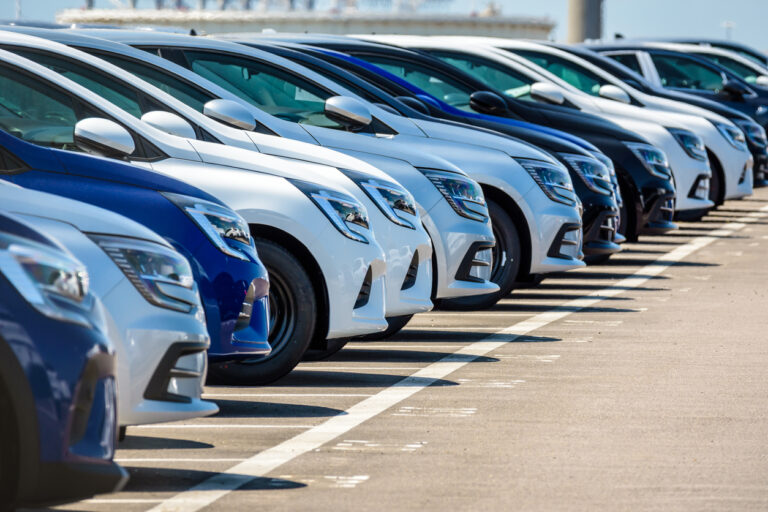Nostalgia for the Good Old Days
At a recent corporate training session, attendees were stunned when a facilitator reminisced about purchasing a brand-new Volkswagen Beetle for just ₦3,000 in the late 1970s. Back then, fresh graduates were often offered new cars as part of employment perks.
Fast forward to today, and the reality is starkly different. The affordability of new cars has become a distant memory for many Nigerians. Even imported fairly used (Tokunbo) vehicles, once the go-to option for middle-class buyers, are now out of reach. Instead, Nigerian-used cars—pre-owned vehicles that have spent years on local roads—are increasingly becoming the only viable option for many.
The Rise of Nigerian-Used Cars
With the rising cost of imported vehicles, many car buyers now turn to locally used cars, purchased from individuals or dealers on streets, at mechanic workshops, and through platforms like Cars45, Automania, and CarsToday. Unlike in the past when used cars were sold with clear signage, today’s sellers use subtler methods, such as placing a bottled water on the roof of the car to indicate it’s available for sale.
However, these vehicles often come with considerable wear and tear due to poor road conditions and lack of regular maintenance. Despite this, prices remain high. A Nigerian-used 2003 Toyota RAV4, for instance, sells for around ₦4 million, while its Tokunbo counterpart goes for about ₦7 million. Meanwhile, the 2010 model ranges from ₦6.6 million to ₦18 million, depending on condition, mileage, and location. The newest 2022 model of a fairly used RAV4 can cost upwards of ₦30 million.
Why Are Car Prices Skyrocketing?
Several factors contribute to the steep rise in car prices:
- Government Tariffs – Import duties on used and new cars have increased, with importers now paying up to 35% in tariffs.
- Foreign Exchange Instability – The naira’s depreciation against the dollar has made car importation significantly more expensive. As of 2024, the exchange rate has soared beyond ₦1,600 per dollar, making it difficult for importers to sustain their businesses without passing on costs to consumers.
- High Importation Costs – Fluctuating foreign exchange rates, high landing costs, and increasing customs duties have further discouraged vehicle importation.
- Economic Hardship – Many Nigerians are struggling financially, leading to reduced demand for Tokunbo cars and a shift towards more affordable Nigerian-used vehicles.
The Business of Nigerian-Used Cars
Car dealers are adjusting to the shift in demand. In Abuja, auto dealer Nuhu Ismaila acknowledges that Tokunbo cars have become too expensive, forcing his business to rely on locally used cars. He explains that buyers are aware of the cars’ conditions but have little choice.
Similarly, dealer Emeka Nwokoye highlights the growing demand for Nigerian-used cars due to economic constraints. Instead of paying for showroom space, he now connects buyers directly with car owners and takes a commission upon sale.
Many car owners, including civil servants, are also taking advantage of this trend by selling off their older vehicles to upgrade to newer models within the Nigerian-used category. Government auctions, where official vehicles are sold off at reduced prices, further fuel the market.
Auto Dealers Diversify or Exit the Business
With the auto trade becoming riskier, some dealers are diversifying their businesses. Izuchukwu Ezeokoli, managing director of Izzy Cars International, ventured into the bar and lounge business in 2022, doubting that the car market would recover soon.
He explains that importing cars has become unsustainable: “At over ₦1,600 per dollar, filling a 40ft container with vehicles is nearly impossible. The risk is high, and those who do import have no choice but to transfer the cost to buyers.”
Is There a Solution?
Experts argue that the government needs to implement policies that encourage local vehicle production and ease import restrictions. Economist Olushola Adenuba suggests that automobile assembly plants, such as Innoson Motors, should receive stronger support. “Innoson exports vehicles to other countries, yet few Nigerians can afford them. The government and corporate organizations should partner with banks to offer flexible car financing options,” he advises.
Others believe Nigeria’s economic struggles stem from decades of poor planning. Pharmacist Andrew Orakwe criticizes past governments for failing to prepare for economic growth, leading to the current affordability crisis.
The Future of Car Ownership in Nigeria
As long as economic conditions remain harsh and foreign exchange rates unstable, the Nigerian-used car market will continue to thrive. However, experts stress that a long-term solution requires government intervention to stabilize the economy, encourage local manufacturing, and provide more accessible financing options for potential buyers.

